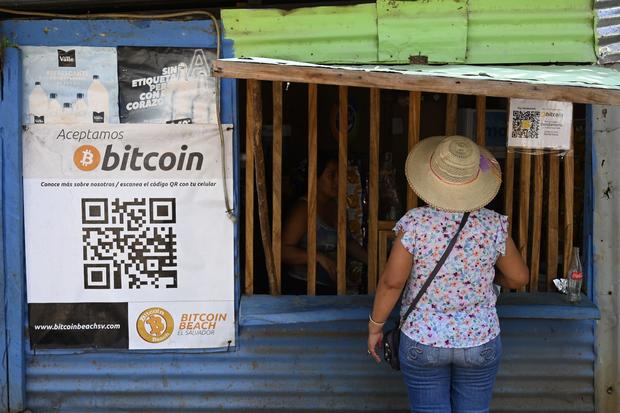Bitcoin is legal currency in El Salvador but its rollout hits major snags
El Salvador officially adopted bitcoin as a legal currency on Tuesday, becoming the first country to do so. However, several hours into the first day, the launch of Chivo, the government's digital wallet app that allows Salvadoran citizens to transact in the volatile cryptocurrency, suffered snags and the price of bitcoin fell as much as 10% as of early Tuesday afternoon.
Bitcoin can now be used as a legal tender for any business that can support and process transactions with it, months after the Latin American country's congress approved the move. While the financial world awaits how El Salvador executes the rollout, the country's president, Nayib Bukele, suggested on Monday that there would be a "learning curve."
"Every road to the future is like this and not everything will be achieved in a day, or in a month. But we must break the paradigms of the past, " he tweeted in Spanish. "El Salvador has the right to advance towards the first world."
 A woman buys in a store that accepts bitcoins in El Zonte, La Libertad, El Salvador on September 4, 2021. MARVIN RECINOS/AFP via Getty Images
A woman buys in a store that accepts bitcoins in El Zonte, La Libertad, El Salvador on September 4, 2021. MARVIN RECINOS/AFP via Getty Images Bitcoin's first official day as a legal currency in El Salvador hit some snags. On Tuesday morning, Chivo was temporarily disconnected to "increase the capacity of its [computer] servers," Bukele said, as Salvadorans rushed to use the app, which gave out users $30 worth of the cryptocurrency after signing up. As bitcoin prices were falling during hitches with Chivo, Bukele said the country bought 150 more of the cryptocurrency at a "discount" after purchasing 400 bitcoins a day earlier.
Meanwhile, some fast food chains operating in El Salvador, such as McDonald's and Pizza Hut, have already begun to accept bitcoin as a form of payment in the country. One Twitter user, who was retweeted by Bukele, said he bought his coffee at a McDonald's in San Salvador using bitcoin.
Just walked into a McDonald's in San Salvador to see if I could pay for my breakfast with bitcoin, tbh fully expecting to be told no.
But low and behold, they printed a ticket with QR that took me to a webpage with Lightning invoice, and now I'm enjoying my desayuno traditional! pic.twitter.com/NYCkMNbv7U
â€" Aaron van Wirdum (@AaronvanW) September 7, 2021Bukele championed the cryptocurrency as a way for Salvadoran citizens to easily send and receive money from abroad, since El Salvador's economy depends heavily on what are called called remittances. According to World Bank data, remittances to the country made up nearly $6 billion â€" or almost 20% of its gross domestic product â€" in 2019. Buekele previously said bitcoin could improve financial inclusion and access to wealth in a desperately poor nation.
As legal tender in El Salvador, bitcoin can be used in any transaction and businesses will have to accept that payment form, according to the legislation passed in June. The law also states that tax contributions can be paid via bitcoin and exchanges in the cryptocurrency will not be subject to capital gains tax.
Under the new law, El Salvador will "promote necessary training and mechanisms so that the population can access [bitcoin] transactions." However, those who do not have access to technologies that can carry out bitcoin are excluded from being required to accept it as payment. The U.S. dollar and bitcoin are the country's official currencies.
The move brings financial risks to ordinary Salvadorans and their country, experts say, as the cryptocurrency gains and loses huge amounts of value in a flash â€" and at times overnight. El Salvador is one of the poorest countries in the region, and Bukele is seeking a $1 billion program with the International Monetary Fund, which raised concerns about the adoption of bitcoin.
0 Response to "Bitcoin is legal currency in El Salvador but its rollout hits major snags"
Post a Comment